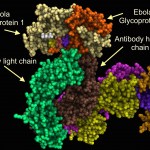ebola
Gregg Mitman's article in the September 17th New England Journal of Medicine, "Ebola in a Stew of Fear," is unfortunately all too prescient. Dr. Mitman highlighted "the ecology of fear" in Western Africa. Fear is present on both the part of Westerners (scared of Africa's yellow fever, malaria, Ebola, its mere "different-ness"), and by native Africans (of whites' history of colonization and slavery, of medical exploitation dating back well over a century). Fear of each other.
This history of fear, the cultural legacy of decades of mistrust of both Western people and their medical…
This one will be much shorter than usual, mainly because I was out late last night for a dinner function at which I was on a panel of breast cancer experts. I must admit, even after having been an attending surgeon for 15 years, it never ceases to make me feel a bit weird to be presented as a “breast cancer expert”—or an expert at anything, for that matter. It’s rather like how I sometimes feel a bit weird that skeptic groups still invite me to give talks. Ten years ago, I sucked at public speaking. Now I’m apparently good enough that people want to hear me. Go figure.
In any event, I hate…
Before I got sidetracked with a certain topic that’s consumed the blog, another topic that had popped up (albeit nowhere near as frequently) was the latest Ebola virus disease outbreak in Africa, the largest in history thus far. Indeed, as horrific as this outbreak is and as terrible a disease as Ebola is, with close to a 60% mortality even with the best treatment, it did produce one amusing bit of clownishness, and that’s that it revealed that there really is something too quacky even for Mike Adams of NaturalNews.com to tolerate.
I’m referring to an incident four weeks ago where a truly…
One wonderful thing that has come two US citizens being infected Ebola (and successfully treated for the disease) is *education* the general public is getting about this, frankly, 'scary' virus.
Im not talking about the bizarre nonsense/missed opportunity posted by Sanjay Gupta and his 'producer' Danielle Dellorto. Of course science bloggers have capitalized on this opportunity to educate people (its kinda what we *do*). But some journalists in main-stream-media, unlike Gupta and Dellorto, have taken a moment to speak to actual scientists working on Ebola/the…
As an unprecedented outbreak of Ebola crosses borders in West Africa, people are asking new questions about the virus and its potential to turn into a global pandemic (hint: it's not gonna happen). Greg Laden writes "The disease is too hot to not burn itself out, and it has no human reservoir. Ebola accidentally broke into the human population earlier this year or late last year." The current numbers from the WHO suggest 1800 confirmed and suspected cases of Ebola so far with a mortality rate edging down toward 55%.
Last week some in the U.S. objected to bringing two American patients…
Over the last decade that I’ve been at this blogging thing, I’ve come across some incredibly irresponsible quackery, but what I saw about a week and a half ago took the cake. I’m referring to practitioners of The One Quackery To Rule Them All, homeopathy, demonstrating a sense delusion that was as massive as the concentration of a 30C homeopathic dilution is small when they proposed that homeopathy could be used ot treat Ebola virus disease. There are not enough facepalms face palmy enough to express the disgust at the utter ridiculousness and irresponsibility of even suggesting that magic…
A few of the recent pieces I've liked:
Everything Tara C. Smith at Aetiology is writing about Ebola, especially her re-post of What's it like to work an Ebola outbreak?
Chris Young at the Center for Public Integrity: Critic of artificial sweeteners pilloried by industry-backed scientists
Dena E. Rifkin in Health Affairs: A Fighting Chance: How Acute Care Training Is Failing Patients With Chronic Disease
A-P Hurd at CityLab: How Outdated Parking Laws Price Families Out of the City
Charles Orenstein at ProPublica: Suspicious Prescriptions for HIV Drugs Abound in Medicare
By the same lead author that published the pig Ebola transmission paper comes a new publication examining airborne transmission among primates. In these, Ebola did *not* spread between non-human primates (NHPs) via air. I sent an email to the PI to comment; will update the post if he responds, but in the meantime, some money quotes directly from the publication:
"One experiment reported contact free transmission between infected NHPs to one uninfected NHP although cross-contamination due to husbandry practices could not be ruled out with certainty26. Interestingly, EBOV infected swine…
Yambuku, Zaire, 1976. A new disease was spreading through the population. Patients were overcome by headaches and bloody diarrhea. The disease was spreading through entire families and wiping them out.
Eight hundred and twenty-five kilometers to the northeast, a similar epidemic was reportedly raging across the border in Maridi, Sudan. Were these outbreaks connected? Despite enormous challenges trying to navigate both the logistics of crossing a landscape of unpaved and unmarked roads, as well as the political difficulties of an attempt to enter and collect samples in an area marked by recent…
For several days now, people have been quoting The Hot Zone* at me as a realistic account of an Ebola outbreak. Just...no. I have an article up today at mic.com addressing this and some more Ebola myths: Everything you know about Ebola is wrong.
*Entertaining as hell, but very over-dramatized.
Ebola virus disease (EVD), formerly known as Ebola hemorrhagic fever, has been reported in humans since 1976, but the current epidemic of the disease – affecting Guinea, Liberia, and Sierra Leone – is unprecedented. There is no vaccine or cure for Ebola, and in past outbreaks up to 90% of people confirmed to have the disease died (the case-fatality rate is closer to 60% this time). A WHO fact sheet gives a grim list of the symptoms:
EVD is a severe acute viral illness often characterized by the sudden onset of fever, intense weakness, muscle pain, headache and sore throat. This is followed by…
In 1925, dogsledders raced through the frozen Alaskan bush to bring antiserum to the isolated village of Nome. The antiserum arrived in time, saved the lives of many villagers from the horrors of diphtheria, and inspired the Iditarod, a famous race in celebration of the dog sledders' heroic feat.
West Africa could use a similar effort today. Richard Harris's blog at NPR has a good story about doctors' efforts to develop and use antiserum to treat Ebola. According to ABC news, Dr. Kent Brantly, who is being seen at Emory University Hospital was treated…
Since yesterday's post, several people have asked me on various social media outlets about the airborne nature of Ebola. Didn't I know about this paper ("Transmission of Ebola virus from pigs to non-human primates"), which clearly showed that Ebola could go airborne?
Indeed I do--I wrote about that paper two years ago, and it in no way changes my assertion that Ebola doesn't spread between people in an airborne manner.
Let me back up. The paper in question was an experimental study done in the wake of the 2008 finding of the Reston Ebola virus in pigs and a previous study looking at…
It's odd to see otherwise pretty rational folks getting nervous about the news that the American Ebola patients are being flown back to the United States for treatment. "What if Ebola gets out?" "What if it infects the doctors/pilots/nurses taking care of them?" "I don't want Ebola in the US!"
Friends, I have news for you: Ebola is *already* in the US.
Ebola is a virus with no vaccine or cure. As such, any scientist who wants to work with the live virus needs to have biosafety level 4 facilities (the highest, most secure labs in existence--abbreviated BSL4) available to them. We have a number…
In the light of the current Ebola outbreak, I thought this post from 2007 was once again highly relevant.
As another Ebola outbreak simmers in Uganda (and appears to be increasing), I recently was in touch with Zoe Young, a water and sanitation expert with Médecins Sans Frontières (MSF*, known in the US as Doctors without Borders), who was working in the Democratic Republic of Congo during the DRC Ebola outbreak earlier this fall (and blogging it!)
Regular readers know of my interest in this virus, but I'm obviously geographically removed from any…
[audio mp3="/files/aetiology/files/2014/08/Tara-C-Smith-Interview-John-and-Amy-8-7-14.mp3"][/audio]
[audio mp3="/files/aetiology/files/2014/08/Dr.-Tara-Smith-Ebola-full-jasen-sokol-show.mp3"][/audio]
Ebola has surfaced again. After a hiatus of over a year without any new identified outbreaks, the virus has reemerged in western Africa, in the first-ever multi-country outbreak of the Zaire strain of Ebola. As of this writing, there have been 122 suspected cases of the disease in Guinea (24 laboratory-confirmed per the WHO) and 80 deaths (66% mortality rate). Most of these cases have been in Guekedou and Macenta in rural Guinea, about 35 miles apart, but what's really concerning is that at least 11 cases have also been identified in Guinea's capital of 2 million people, Conakry.…
Ebola has long been known to be a zoonotic virus--one which jumps between species. Though it took several decades to find evidence of Ebola virus in bats, these animals had previously been associated with human index cases of Ebola disease have worked in bat-infested warehouses or traveled to caves where bats roost. Non-human primates have also become infected with the virus, sometimes transmitting the virus to humans when killed primates are butchered for food. Ebola has also been suggested to infect dogs and other wild animals. However, livestock are a newer angle to Ebola virus ecology.…
Uganda's latest Ebola outbreak, which I covered back in July, was just officially declared over on October 5th, a mere two weeks ago. Now today there is a report that three are dead from an outbreak of Marburg virus. That makes 4 Ebola outbreaks and now 2 Marburg outbreaks in the country since 2000.



